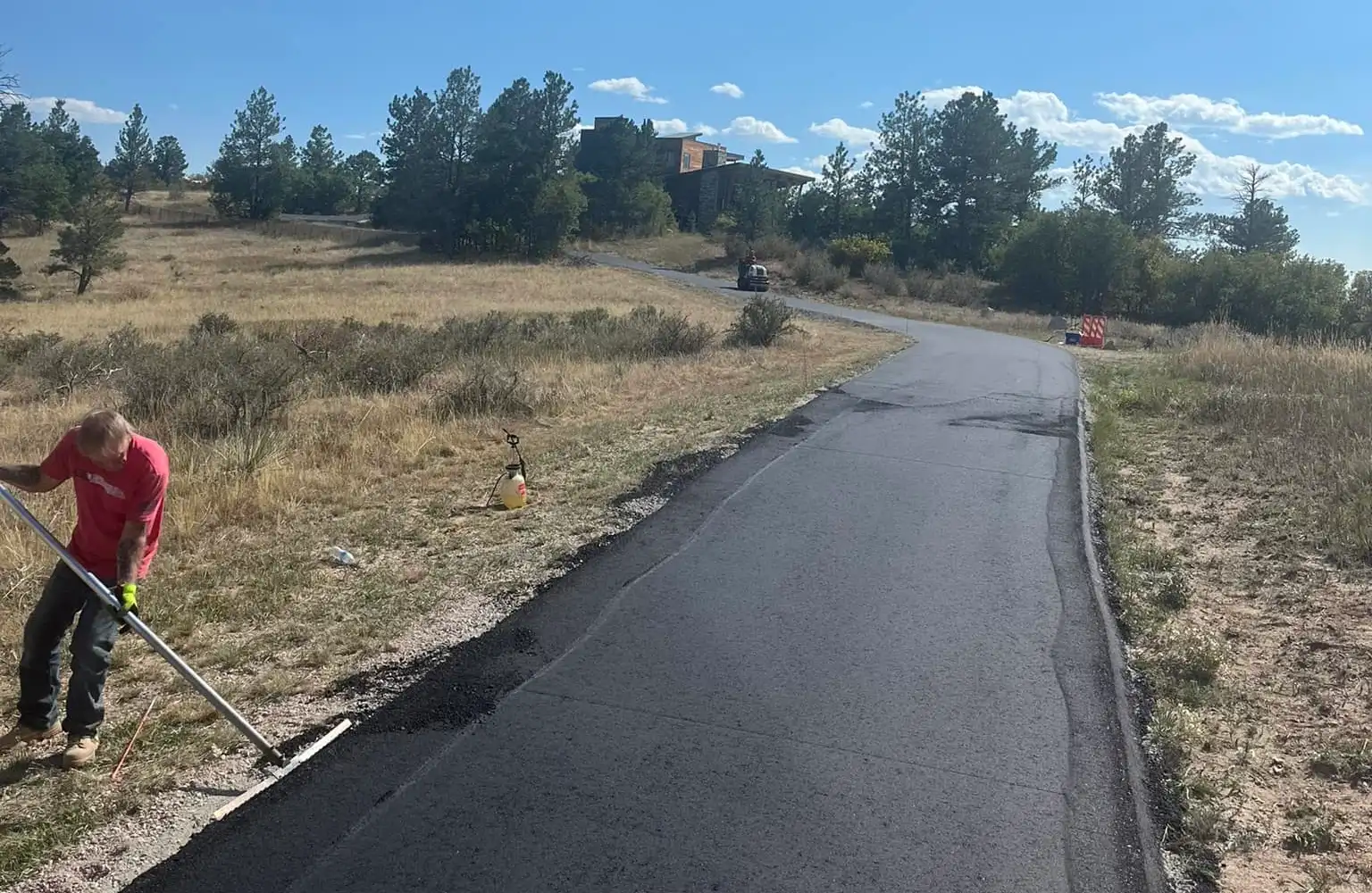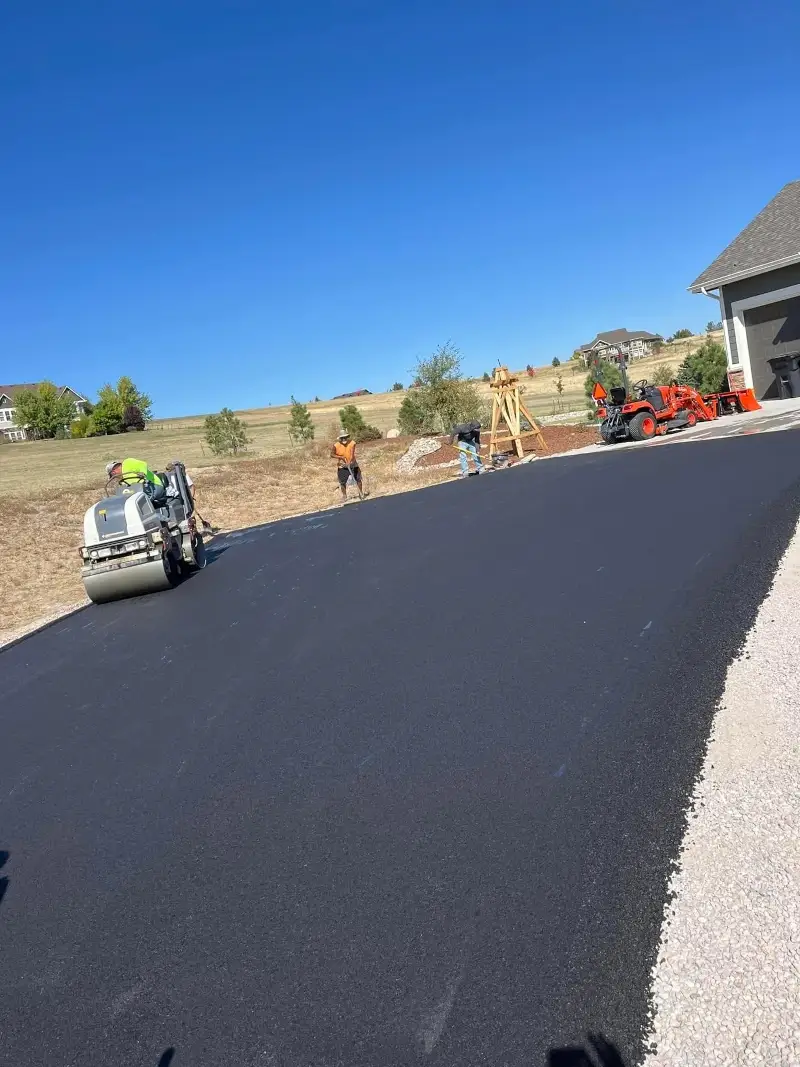
A Guide to Installing a New Asphalt Driveway in Colorado Springs
If you’re considering installing a new asphalt driveway in Colorado Springs, you likely have several questions about the process, the costs, and how to ensure your investment lasts for years. In this guide, we’ll answer some of the most common questions homeowners have about asphalt driveways in this area.
Asphalt is a popular choice for driveways because it offers a smooth surface, is cost-effective, and can withstand Colorado’s varying weather conditions. With proper installation and maintenance, an asphalt driveway can serve you well for 15-20 years or more.
The weather in Colorado Springs presents specific challenges, including freeze-thaw cycles, high-altitude UV exposure, and seasonal temperature swings. These conditions require an asphalt mix that is tailored to handle the local climate. A professional contractor familiar with Colorado Springs’ unique conditions can help ensure your driveway performs well over time.
The timeline for installation depends on the size of the driveway, site preparation, and weather conditions. Generally, the process can take anywhere from 2-5 days, including:

In most cases, the Pikes Peak Regional Building Department does not require a permit for a driveway as long as it is supported directly on grade. This department oversees Unincorporated El Paso County and the cities of Colorado Springs, Fountain, Manitou Springs, Green Mountain Falls, Monument, and Palmer Lake.
However, there are instances where permits may be required for driveway projects in Colorado Springs:
To avoid delays or fines, always check with your local building department before starting any work. It’s better to confirm requirements upfront than to face a stop-work order later.
To keep your driveway in great shape, regular maintenance is key. Here are some essential tips:
Yes, generally speaking, gravel driveways are allowed in Colorado Springs. However, some homeowner’s associations (HOAs) may have specific restrictions against them. If you live in a neighborhood with an HOA, it’s important to review your HOA bylaws to ensure compliance before proceeding.
Expansive soils are types of clay-rich soils that expand when wet and contract when dry. This movement can lead to shifting, cracking, and other damage to driveways and structures built on them.
Unlike Denver, which has a lot of clay soils, In Colorado Springs, soil conditions vary significantly based on location. Homes closer to the foothills are less likely to encounter expansive clay soils due to the rocky terrain. However, as you move farther east, the likelihood of encountering clay-rich soils increases. This variability makes it essential to understand your soil conditions before installing a driveway.
If expansive soils are present, proper site preparation, including soil stabilization or installing a thicker base layer, can help mitigate potential issues.
Thanks to the region’s relatively mild winters, asphalt can technically be laid year-round in Colorado Springs. However, for optimal results, the best time to install a new asphalt driveway in Colorado Springs is between April and mid-October. During this period, temperatures are more consistent, which helps the asphalt cure properly.
Driveway Sealcoating in Colorado Springs typically run from late April through late September. Scheduling during these times ensures your driveway installation or maintenance project has the best chance of success.
Investing in a new asphalt driveway can significantly enhance your home’s curb appeal and functionality. By understanding the unique aspects of driveway installation in Colorado Springs and choosing a reputable contractor, you can enjoy a driveway that meets your needs and withstands the test of time.
If you have more questions or are ready to start your project, contact Riley’s Asphalt today. Our team is here to guide you through the process from start to finish.
Please complete the form below for a free no-obligation estimate.